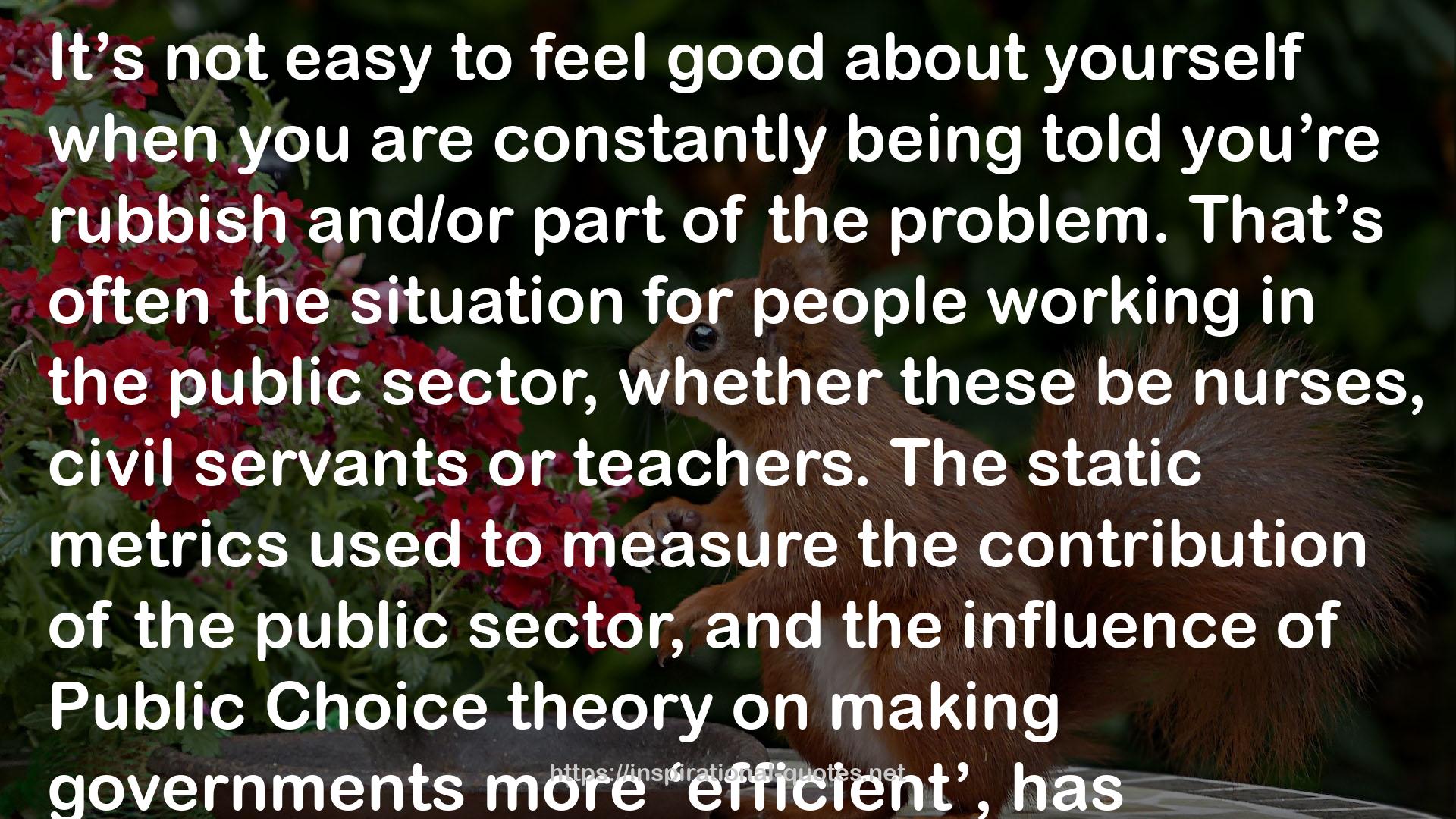" It’s not easy to feel good about yourself when you are constantly being told you’re rubbish and/or part of the problem. That’s often the situation for people working in the public sector, whether these be nurses, civil servants or teachers. The static metrics used to measure the contribution of the public sector, and the influence of Public Choice theory on making governments more ‘efficient’, has convinced many civil-sector workers they are second-best. It’s enough to depress any bureaucrat and induce him or her to get up, leave and join the private sector, where there is often more money to be made. So public actors are forced to emulate private ones, with their almost exclusive interest in projects with fast paybacks. After all, price determines value. You, the civil servant, won’t dare to propose that your agency could take charge, bring a helpful long-term perspective to a problem, consider all sides of an issue (not just profitability), spend the necessary funds (borrow if required) and – whisper it softly – add public value. You leave the big ideas to the private sector which you are told to simply ‘facilitate’ and enable. And when Apple or whichever private company makes billions of dollars for shareholders and many millions for top executives, you probably won’t think that these gains actually come largely from leveraging the work done by others – whether these be government agencies, not-for-profit institutions, or achievements fought for by civil society organizations including trade unions that have been critical for fighting for workers’ training programmes. "
― Mariana Mazzucato , The Value of Everything: Making and Taking in the Global Economy
